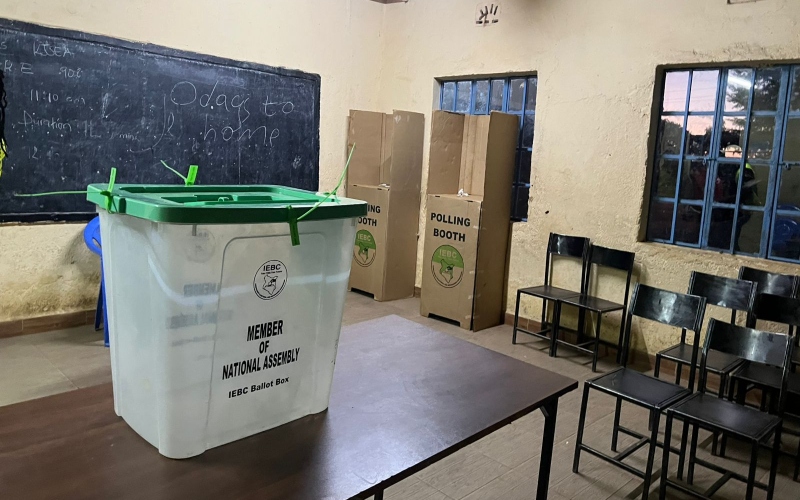Ruto orders establishment of transparent royalty system to end artist exploitation

The president said the new system would ensure that royalties are distributed fairly and efficiently to rightful owners and beneficiaries, marking a significant shift in Kenya's approach to supporting its creative industry.
President William Ruto directed the Kenya Copyright Board to collaborate with industry players and eCitizen in establishing a transparent, real-time system for the collection and distribution of royalties.
The move, according to Ruto, demonstrates his commitment to ending long-standing injustices faced by Kenyan artists, particularly musicians who have been denied their rightful earnings.
More To Read
- Kenya Kwanza adds Sh3 trillion to national debt in three years, CBK reveals
- Cases of police misconduct rises despite overall drop in crime -Report
- Northern region MPs accuse President Ruto of ignoring region in State of the Nation Address
- Government to build 50 mega dams to transform Kenya’s agriculture - Ruto
- Ruto says public demand for affordable housing has replaced doubts with excitement
- Ruto terms Hustler Fund largest financial inclusion programme since independence
Speaking during the 61st Jamhuri Day celebrations at Uhuru Gardens in Nairobi on Thursday, President Ruto condemned the current royalty system, which he said often sees artists earning as little as Sh10,000 annually, while those responsible for collecting royalties pocket millions.
"It is unacceptable that an artist earns as little as Sh10,000 a year, while those tasked with collecting royalties are making millions each month. This injustice must end," Ruto stated.
The president said the new system would ensure that royalties are distributed fairly and efficiently to rightful owners and beneficiaries, marking a significant shift in Kenya's approach to supporting its creative industry.
"We are investing in local content creation to enhance the quality and competitiveness of Kenyan products for export, while also developing digital platforms to showcase our creativity to global audiences," he added.
The President also expressed confidence in the transformation of the creative industry, asserting that Kenya is on course to unlock vast opportunities for local artists.
He further announced Kenya's bid to host the 2026 World Creative Economy Conference, positioning the country as a global leader in the creative sector.
"Hosting this conference will be a bold declaration of Kenya's leadership in the creative economy," Ruto said.
Many musicians have been complaining that they receive little or no royalties.
In February 2024, the Music Copyright Society of Kenya (MCSK) came under fire for failure to account for Sh56 million collected as royalties in 2023.
This was revealed by the Kenya Copyright Board (KECOBO) chairman Joshua Kutuny who flagged a disparity in the royalties collected by MCSK, Kenya Association of Music Producers (KAMP) and the Performers Rights Society of Kenya (PRISK) last year.
MCSK, KAMP and PRISK are the three licensed music Collective Management Organisations (CMOs) and they were invited to meet KECOBO's board of directors to account for monies collected in 2023.
From the information presented by the three CMOs, the board said it established that a sum of Sh249,687,212.80 was collected jointly from January to December 2023.
The copyright board, however, pointed out a disparity in amounts declared by MCSK and those declared by KAMP and PRISK for the year's joint collection.
"While KAMP and PRISK declared a collection of Sh249 million, they accounted for Sh61 million and Sh52.7 million, respectively. MCSK on its part declared receipts of Sh109 million representing a shortfall of Sh26 million," Kutuny said in a statement.
Top Stories Today

















































